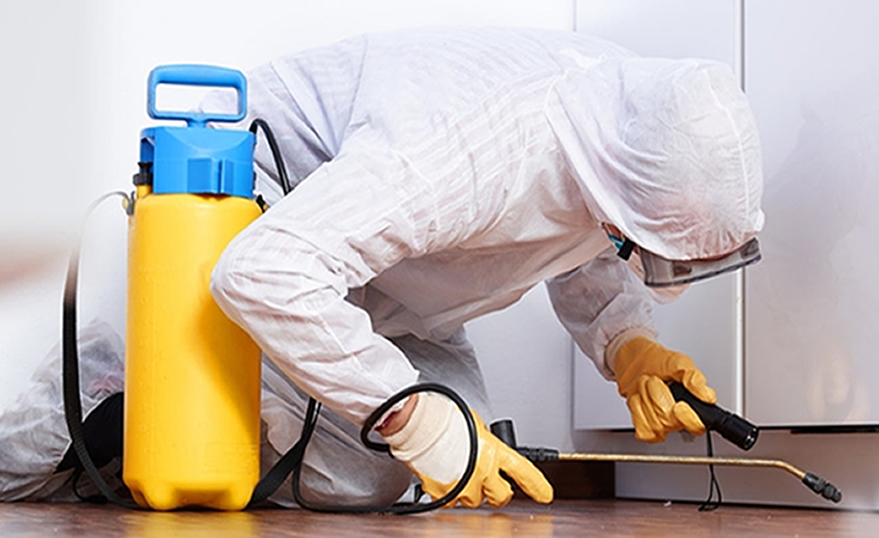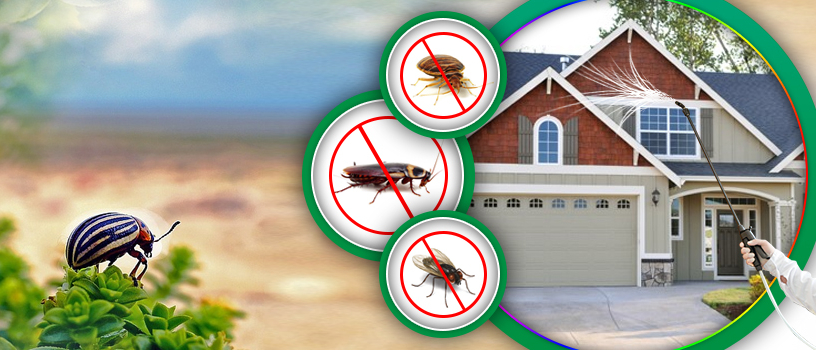Relied On Pest Control Near Me: Quick and Efficient Solutions!
Relied On Pest Control Near Me: Quick and Efficient Solutions!
Blog Article
Expert Bug Control Techniques for Long-Term Results
Professional insect control strategies envelop an extensive approach that starts with a complete inspection and assessment, complied with by exact bug identification to comprehend their behavior patterns. The implementation of Integrated Insect Administration (IPM) principles, combined with eco-conscious treatments, develops the keystone of sustainable pest eradication.
Evaluation and Assessment
Upon entering a building for parasite control solutions, the preliminary step is a complete assessment and evaluation to determine the degree of the infestation and identify one of the most efficient treatment plan. Professional pest control specialists are trained to diligently check out the facilities, trying to find indications of pest task such as droppings, munch marks, nests, or any type of structural damage. They will certainly additionally analyze the problems that may be attracting parasites, such as food resources, water leaks, or access factors.

Insect Recognition and Actions

Furthermore, recognizing the behavior of the recognized bug is essential to executing effective control procedures. Knowing where parasites nest, what they feed on, and their activity patterns can aid pest control experts devise methods to eradicate them effectively.
Integrated Pest Administration (IPM)
Integrated Pest Administration (IPM) strategies integrate multiple methods to regulate and avoid parasite invasions in a lasting and eco-friendly manner. exterminator. By integrating approaches such as biological control, habitat adjustment, modification of social techniques, and using resistant selections, IPM intends to reduce making use of chemical pesticides
Among the key principles of IPM is the focus on avoidance. This proactive method entails surveillance pest populations consistently to spot any type of possible issues before they intensify. By determining bug troubles early on, pest control steps can be applied swiftly and efficiently.
Moreover, IPM promotes using safe bug control approaches whenever feasible. This can consist of using all-natural killers of the parasites, presenting advantageous insects, or using pheromones to disrupt mating patterns. By decreasing reliance on chemical pesticides, IPM not only protects you could try these out the environment but also aids keep an equilibrium in the ecosystem.
Environmentally-Friendly Treatments
Carrying out eco-conscious methods in parasite control procedures can efficiently address problems while prioritizing environmental sustainability. Environmentally-friendly therapies concentrate on minimizing the influence of parasite control approaches on ecological communities, non-target microorganisms, and human health and wellness. These methods commonly entail the use of all-natural killers, such as ladybugs or nematodes, to manage pest populaces, decreasing the need for chemical treatments. Furthermore, strategies like habitat control, such as adjusting dampness degrees or removing food resources, can assist hinder parasites without using damaging substances.
One more trick element of environmentally-friendly therapies is making use of natural and naturally degradable items that break down promptly without leaving harmful deposits in the environment. Organic insecticides obtained from plants like chrysanthemums or neem supply efficient parasite control while presenting marginal risk to non-target species. In addition, employing techniques like warmth treatments or scent catches can target specific bugs with accuracy, lowering the overall environmental influence of pest control methods.
Recurring Monitoring and Maintenance
Constant surveillance check this and upkeep are vital elements of efficient bug control monitoring. Recurring monitoring plays a crucial function in making sure that bug problems are identified very early and dealt with promptly. Regular inspections by trained experts helpful resources are necessary to recognize any kind of indicators of parasite task, analyze the efficiency of previous therapies, and make changes to the bug control strategy as required. By keeping track of insect populations gradually, parasite control experts can track fads, anticipate possible problems, and execute precautionary measures to decrease the risk of future invasions.
In addition to surveillance, upkeep practices are crucial for long-term bug control success. This consists of implementing appropriate hygiene measures to get rid of possible food and water sources for insects, securing off access factors to prevent insects from going into the properties, and dealing with any kind of architectural issues that could help with bug problems (exterminator). By incorporating ongoing monitoring and maintenance into an integrated insect administration method, organizations can ensure a pest-free environment and safeguard their building against costly damage and health risks
Conclusion
To conclude, making use of specialist parasite control strategies such as thorough evaluation and analysis, exact bug identification and understanding of their behavior, integrated parasite monitoring methods, environmentally-friendly treatments, and ongoing surveillance and upkeep are vital for achieving long-term cause bug control. By executing these methods, people can successfully handle insect infestations and keep a pest-free setting in a sustainable fashion.
Report this page